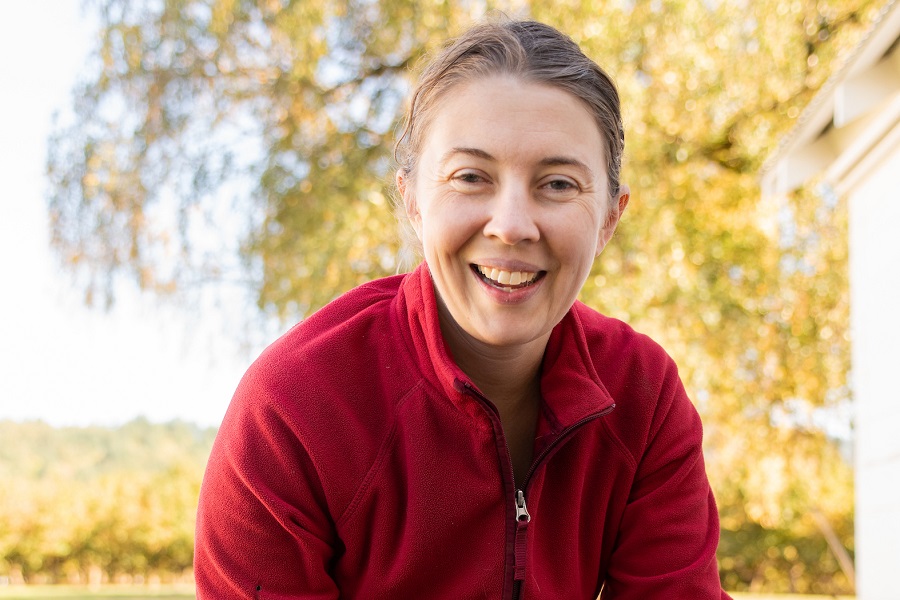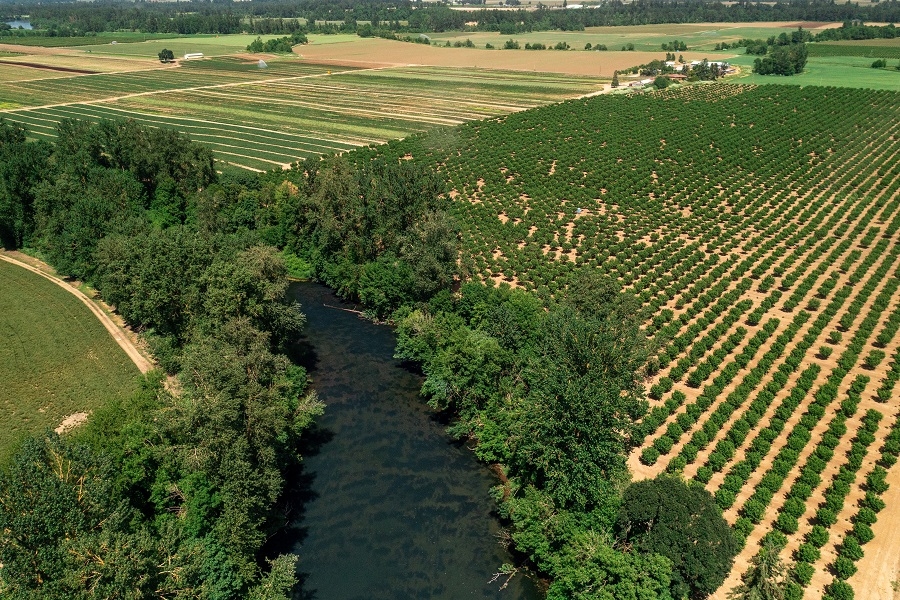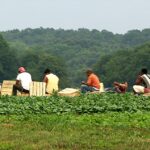The grants, totaling $1.5 million, will go to expanding educational programming and land access — including a ‘matchmaking’ program that helps new farmers network with retiring farmers in search of successors
Oregon State University and Rogue Farm Corps, a regional hub for land access, have won two grants totaling just under $1.5 million to improve agricultural education and to build on an existing program to help new farmers access land.
The awards, announced in late November, are are part of the National Institute of Food and Agriculture’s (NIFA) Beginning Farmer and Rancher Development Program, which supports professional development opportunities for new farmers and ranchers.
Rogue’s grant is $743,900; the organization will use funds to build on a pilot program the organization launched last year to help new farmers access land. Oregon State received $749,997 to expand educational programming for farmers.

Nellie McAdams, executive director of Oregon Agricultural Trust. Credit: Oregon Agricultural Trust
Nellie McAdams, executive director of Oregon Agricultural Trust and co-project director at Rogue, says its project involves buying development rights on agricultural land to make it more affordable, providing business and legal counsel, and connecting first-generation farmers with retiring farmers who may not have younger family members with an interest in taking over the farm.
Last year the program had just two participants, McAdams says. This year, the program will work with 188 farmers.
“We were able to test out a model for young farmers and landowners to see what kind of support they need finding land match and to run a successful business. This is phase two, where we are testing our first regional hubs for farmland access and business viability, helping folks acquire land who will eventually pass it on to the next generation,” says McAdams.
This year’s program participants are in the Willamette Valley, but McAdams says the program can be replicated in other parts of the state, where farmers face an uncertain future.
One of Rogue’s programs is a series of informal mixer events called “changing hands workshops,” where interested first-generation farmers can meet with retiring farmers to potentially find a good fit for succession.
“The average age of from our rancher is 60, in the state, and about 81% of them don’t have a thorough succession plan, some don’t have successors identified. That leaves a huge gap and leadership coming up,” says McAdams. “There’s the potential for that land to be sold to investors, or second home buyers who aren’t going to be using it to provide for our agricultural economy and food systems and rural communities. So what we’re trying to do by getting young farmers onto that property is supporting the rural economy as a whole.”
Garry Stephenson, director of the Center for Small Farms & Community Food Systems at Oregon State University, tells Oregon Business OSU will use its grant to develop climate change adaptation courses for its asynchronous online program. The award will also help the center continue ongoing programs aimed at getting veterans and other newcomers into agriculture.
“An overarching theme for this grant cycle is dealing with climate change. Our online courses will work with farmers to assess where they are currently and make the kinds of improvements they can make on the farm so that they can be more nimble in terms of climate change, how they can blunt its impact, and then how to deal with disasters,” says Stephenson.
“If the worst-case scenario happens and there’s a wildfire, you need to have a plan in place.”
The Center will also use the funds to finance its three onsite teaching farms where students can learn best practices through interaction. Stephenson adds that teaching new farmers how to adapt to climate change has become an essential part of agricultural education.
As part of the grant, OSU will develop programming with two nonprofit organizations: Oregon Tilth, an organic certification and education agency, and the Oregon Community Food Systems Network, a collaboration of 57 nonprofit organizations and allies dedicated to strengthening local and regional food systems.
“What we work on with them on is farm viability, basically sound business management. The educational programs they work on are managerial accounting and determining cost of production, so that people aren’t just growing something and losing money and going out of business,” says Stephenson.
To subscribe to Oregon Business, click here.






